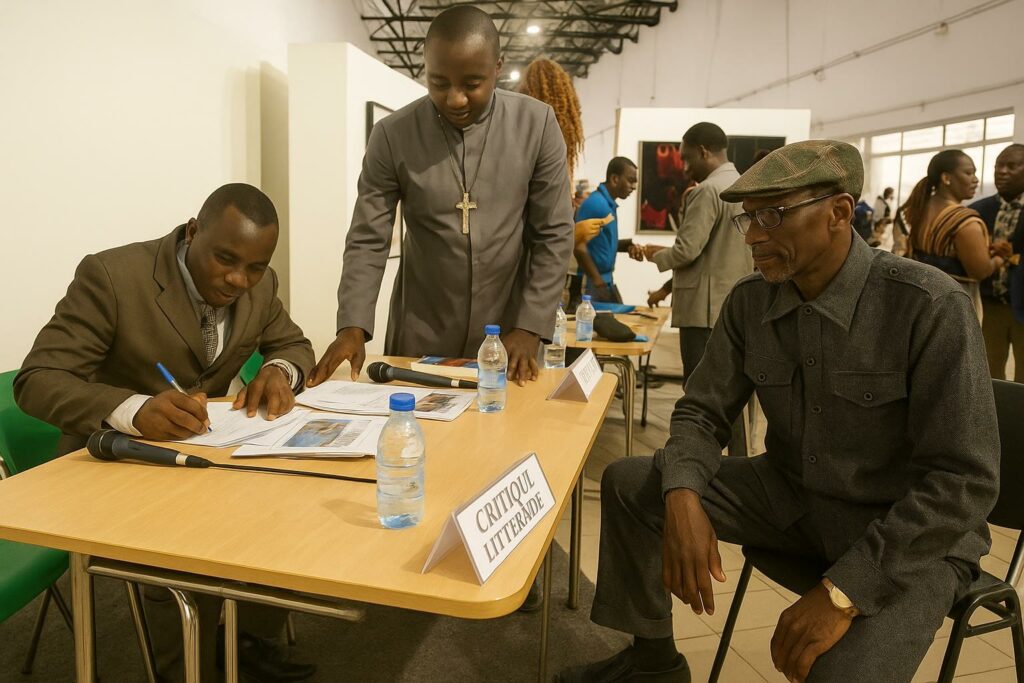A rising literary voice from Brazzaville
On a humid September evening at the Institut français du Congo, the soft rustle of pages gave way to sustained applause as Octave Mouandza signed copies of his latest work, “Longue vie pour rien”. The poet-turned-storyteller, who also serves as Brazzaville’s departmental director of arts and letters, steps into prose with a collection that critics immediately hailed as a fresh milestone for Congolese letters. At eighty-two concise pages, the volume may appear slim, yet the seven narratives it shelters expand far beyond their physical confines, sketching a mosaic of contemporary life that resonates well outside the banks of the Congo River.
From fiction to unflinching social mirror
Literary critic Prospère Descieux Bassaboukila argues that Mouandza practises a form of “fictio-reality”, in which invented plots draw their pulse from verifiable experience. Readers encounter schoolyards scarred by juvenile violence, villages hollowed by the unrelenting pull of urban migration, and family circles bruised by unemployment or restrictive beliefs. By selecting the deliberately paradoxical title “Longue vie pour rien”, the author foregrounds the disconnect between biological longevity and the meaningful fulfilment that too often eludes his characters. Each page therefore becomes an invitation to ponder how structural hardships can fritter away human potential.
Narrative architecture and moral detonations
Structurally, Mouandza orchestrates his stories along a chronological through-line that culminates in endings better described as detonations than closures. Far from offering a neat sense of resolution, these final turns provoke ethical introspection. The opening story, “Pont Loudoumi”, emblematises the approach: a tale of adolescent aggression that ends not with punishment or redemption but with a lingering question about the wider society’s educational failures. Abbé-writer Aubin Banzouzi, who penned the preface, views this choice as a deliberate “feint”, a stylistic device intended to redirect the reader’s gaze from narrative comfort toward communal responsibility.
Thematic breadth anchored in local geography
One of the collection’s quiet triumphs lies in its confident layering of setting. Brazzaville neighbourhoods such as Plateau de 15 ans, Moungali and Combattant mingle with mythic locales like the Kingdom of Mazala or the elusive Paradise of 713-Blanche. This oscillation between cartographic accuracy and imaginative drift reinforces the author’s thesis that hardship is both recognisably local and chillingly universal. The result is an urban-rural continuum where exodus, belief systems and survival economies interlock, producing what Bassaboukila calls “an anthropological fresco” of present-day Congo.
Cultural significance for Brazzaville’s creative economy
While the text refrains from overt economic commentary, its very existence underscores the subtle vitality of the city’s cultural industries. Editions Muse, the independent house that shepherded the manuscript to press, demonstrates how small publishers continue to nurture domestic talent and export Congolese perspectives to francophone readerships abroad. In that sense the volume participates in a broader, quietly expanding literary market whose multiplier effects—bookshop sales, public readings, translation rights—feed the intellectual and economic life of the capital.
Key takeaways for readers and policymakers
Beyond aesthetic merit, “Longue vie pour rien” embodies a sober reminder that unresolved social challenges carry intergenerational costs. The book’s evocations of under-resourced schools, precarious employment and fragile rural livelihoods lend literary flesh to policy debates often confined to statistics. Without prescribing solutions, Mouandza’s prose urges decision-makers, educators and families alike to protect the promise of Congolese youth by reinvesting in the values that sustain communal well-being.
An enduring question mark
Asked during the launch whether his title expressed resignation or defiance, Mouandza smiled before replying that literature’s first duty is to ask uncomfortable questions. That principled uncertainty lingers after the final page is turned, reminding the reader that a long life can indeed amount to very little—unless society consciously architects the conditions for dignity. In bridging poetry and narrative, realism and imagination, the author has offered a work that is both an artistic achievement and a civic nudge. Brazzaville’s literary community will now decide how loudly the echo resounds across classrooms, living rooms and public forums.

